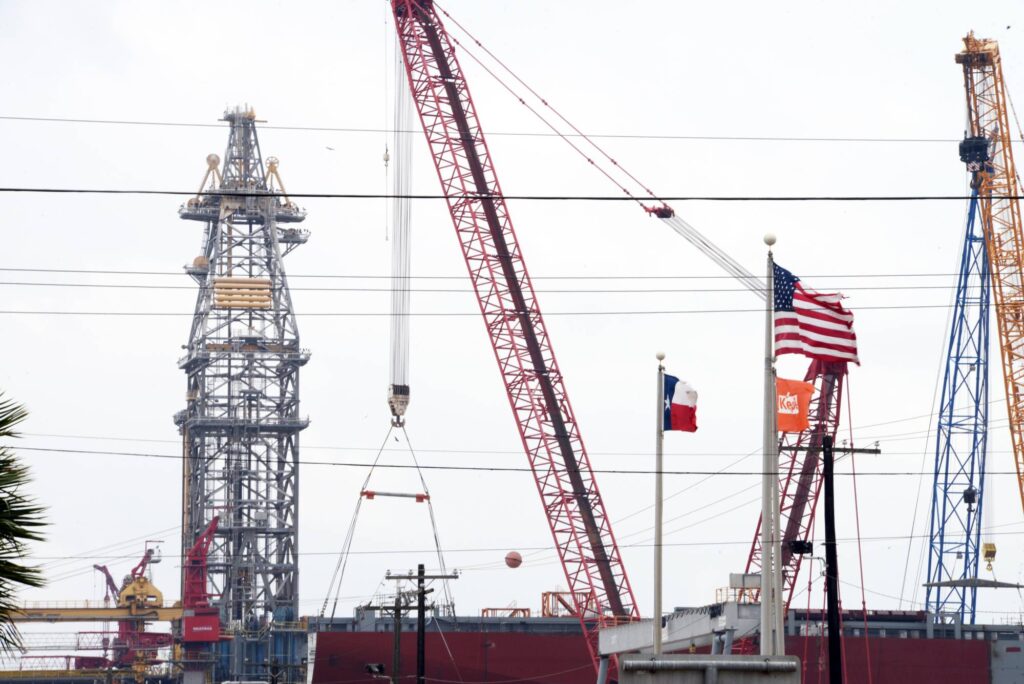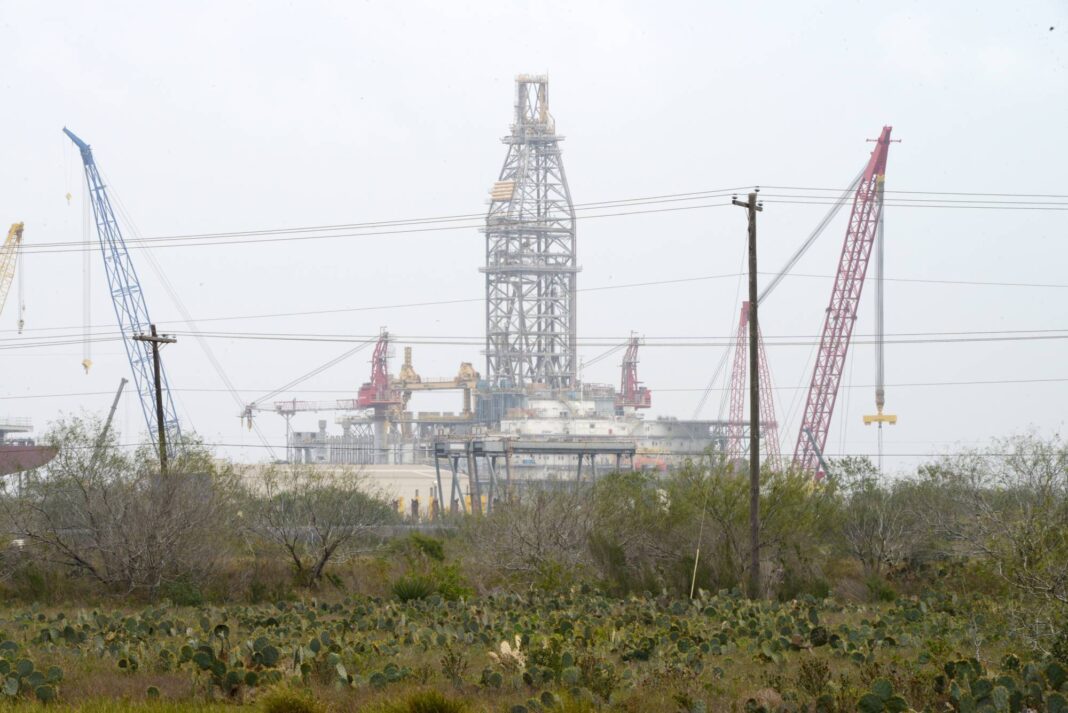When oil prices plummeted in 2014-2015 because of a worldwide glut and drilling in the Gulf of Mexico fell off, Keppel AmFELS saw much of its offshore-oil-rig business drift away, and it’s never really come back.
The pandemic only worsened the glut, driving oil prices down even more and further dampening enthusiasm for offshore drilling — any kind of drilling for that matter. Some of the world’s largest owners of offshore rigs filed for bankruptcy last year.
Instead of waiting for the rig work to come back over the horizon, Keppel AmFELS, established at the Port of Brownsville in 1990, began pursuing new opportunities that did not involve the fabrication, repair and maintenance of the types of the “jack-up” offshore rigs that had been its bread and butter for years.
In May 2017, Honolulu-based shipping firm Pasha Hawaii announced it had signed contracts with Keppel AmFELS, a subsidiary of Singapore-based Keppel Offshore & Marine Ltd., to build two liquefied-natural-gas powered container ships with an option to order two additional ships. The first, M/V George III is on schedule for delivery the first quarter of this year, according to Keppel AmFELS.
Eduardo Campirano, Brownsville port director and CEO, said Keppel AmFELS has “introduced a whole new industry to the state of Texas.”
“Who else in Texas is building 775-foot ocean going container vessels? That has led to getting contracts for larger jobs.”
In September 2019 Keppel announced it had won a contract to build the nation’s largest trailing suction hopper dredger for Manson Construction Company of Seattle, Wash. Then on Dec. 17 last year, Virginia-based Dominion Energy celebrated the keel laying of the first Jones Act-compliant offshore wind turbine installation vessel at the Keppel AmFELS yard.
Laying the keel signals the official start of building a ship, while the Jones Act refers to the Merchant Marine Act of 1920, a law created to protect U.S. maritime interests and offshore workers. It requires that all vessels carrying goods between two U.S. ports be built, owned and flagged in the United States, and crewed by U.S. citizens or legal aliens. In 2005 the Supreme Court expanded the definition of a Jones Act vessel to include dredges.
Campirano said the Dominion project is particularly significant.
“Those are huge projects that they’re competing for in the domestic market for Jones Act,” he said. “This isn’t just competing with some port down the street from us. This is a big deal.”
Singapore-based Keppel Corporation, the global conglomerate of which Keppel AmFELS is a part, is no stranger to shipbuilding. Plenty of its subsidiaries build ships, just not historically in Brownsville. The fact that AmFELS has managed to make the transition from offshore rigs to shipbuilding means the company is putting people to work again — definitely a plus from the port’s perspective.
“When we were at Keppel two years ago the parking lot was empty,” Campirano said. “You drive by Keppel today the parking lot is full. That’s what we want to see.”
“Keppel AmFELS is bustling with activity with several new and diverse projects,” according to a statement from Keppel AmFELS. “The yard has boosted its ship building expertise by upgrading its capabilities and enhancing productivity to be able to build a wide range of complex vessels. Keppel AmFELS is in the prime position to undertake engineering, procurement and construction of specialized vessels for the Jones Act market.”

Construction of the Dominion ship will provide “significant American jobs and provide a reliable U.S. installation solution with capacity to handle the next generation of large-scale turbine technologies,” according to the statement.
Keppel AmFELS was presented with the 2020 Brownsville Navigation District Chairman’s Award in December for bringing a major shipbuilding operation to South Texas and creating roughly 1,400 full-time jobs in the process.
Campirano, meanwhile, hopes the shipbuilding contracts signal a long-term trend for the company.
“My understanding is that they’ve gotten a lot of visits, a lot of inquiries about their capabilities, especially with the Jones Act market, especially the ability to design vessels that can take advantage of the LNG propulsion technology,” he said. “There are some big pluses for them right now. They seem to be on a roll.”




